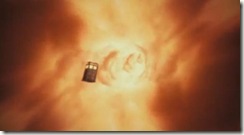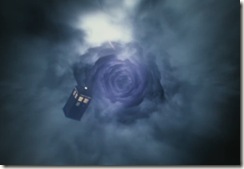 2012 is a leap year, which means today is February 29th instead of March 1st. Many people probably simply accept leap years as one of those weird little curiosities in life, without really knowing why they occur.
2012 is a leap year, which means today is February 29th instead of March 1st. Many people probably simply accept leap years as one of those weird little curiosities in life, without really knowing why they occur.
Once upon a time, the “year” was quite malleable, with days and even months being inserted into the calendar by priests when they wanted to keep their favourite politician in power. Julius Caesar found the chaos this caused highly annoying so he decided to sort it out once and for all and introduced the Julian calendar in 45 BC.
His solution did away with much of the chaos, but there was still a certain amount of “slippage” caused by the difference in the length of the calendar year and the tropical year (aka the solar year), which was roughly 365.25 days long. This “slippage” resulted in an error of 1 day every 128 years, meaning the tropical year started a day earlier every 128 years.
To compensate for this, the Romans added a “leap year” every four years to get things back in sync. However, due to a counting error, the first few years the calendar was used, a leap year was took place every three years rather than every four. The emperor Augustus compensated for the extra days by skipping a number of leap years, which resulted in the 8th month of the year to be named after him.
By the mid-1500′s the difference between the calendar year and the tropical year had become about 10 days and calculating when Easter took place was quite difficult. So, in 1582 Pope Gregory XIII decided to remove the extra days and align the vernal equinox with March 21st because that’s when it occurred during the Council of Nicaea in AD 325.
Leap years under the Gregorian calendar occur every year that is evenly divisible by 4, except centuries (eg: 1600, 1700, 1800, 1900, etc) unless the century was evenly divisible by 400.
The last day of the Julian calendar was Thursday, October 4, 1582 and the first day of the Gregorian calendar was Friday, October 15, 1582. However, the Gregorian calendar was not adopted by everyone at the same time. For example, Spain, Portugal, the Polish-Lithuanian Commonwealth and most of Italy adopted it on Friday, October 15, 1582, but other countries waited. Sweden transitioned to the Gregorian calendar sometime in the early 18th century. One of the last countries to adopt it was Greece in on March 1, 1923, which followed February 15th. China seems to have adopted in 1929, after first adopting it in 1912. (There was a certain amount of chaos between 1912 and 1929.)
None of the national Orthodox churches, however, recognized the Gregorian calendar when it was introduced and many instead adopted a Revised Julian calendar in 1923 which saw 13 days dropped and a different leap year rule. This will see the two calendar systems in sync until 2800, at which point it will be someone else’s problem.
Other Orthodox churches didn’t accept the Revised Julian calendar, either, so they’ll continue to celebrate Christmas on the 7th of January (until 2100).
Other orthodox churches use their own calendars to set their religious holidays.
With respect to Easter, the eastern Orthodox churches still use Julian Easter. Except the Finnish Orthodox Church, which uses the Gregorian Easter.
So, all this is to say that it’s Wednesday, February 29, 2012.
 Hey… can you believe it? I almost forgot to post my semi-annual rant about having to change to daylight saving time. Fortunately for you, I remembered. 🙂
Hey… can you believe it? I almost forgot to post my semi-annual rant about having to change to daylight saving time. Fortunately for you, I remembered. 🙂


 It’s time for my semi-annual rant about having to adjust the clocks by an hour for no particularly good reason. It’s also a good time to change the batteries in your battery-powered smoke detectors.
It’s time for my semi-annual rant about having to adjust the clocks by an hour for no particularly good reason. It’s also a good time to change the batteries in your battery-powered smoke detectors.
 2012 is a leap year, which means today is February 29th instead of March 1st. Many people probably simply accept leap years as one of those weird little curiosities in life, without really knowing why they occur.
2012 is a leap year, which means today is February 29th instead of March 1st. Many people probably simply accept leap years as one of those weird little curiosities in life, without really knowing why they occur. AKA Keeper of Maps, I'm a geocacher who lives in Ottawa, Canada.
AKA Keeper of Maps, I'm a geocacher who lives in Ottawa, Canada.
